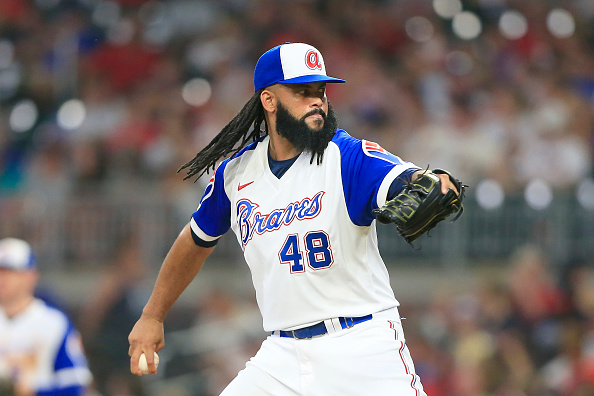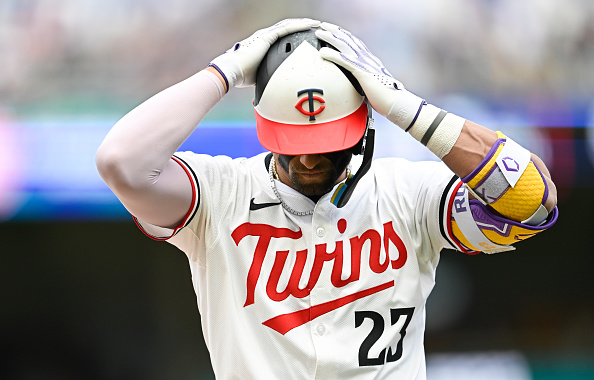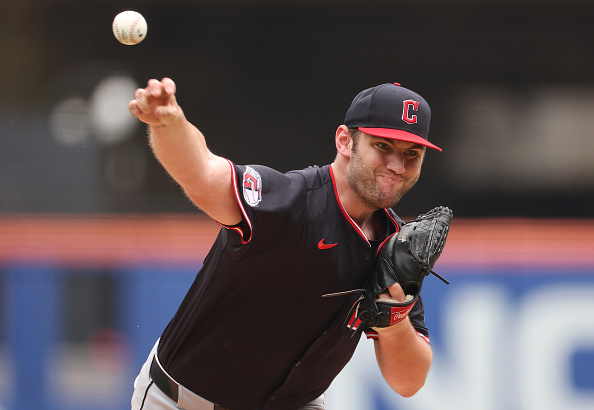This year’s MLB trade deadline came and went, with a ton of deals made in the final hours. Most of the focus was on the Cubs, who traded away pending free agents Kris Bryant, Anthony Rizzo, and Javier Baez. The Dodgers picked up Trea Turner and Max Scherzer from Washington and the White Sox got Craig Kimbrel from their crosstown rivals. One move managed to fly under the radar involving a closer with two extra years of team control going to a team that is in the playoff mix. The trade in question? The Braves sent arms Bryse Wilson and Ricky DeVito to Pittsburgh for right-hander Richard Rodriguez.
This is not a trade review. The point here is not to rag on one of these teams and say why they were robbed. Rather, it is to highlight Rodriguez’s odd arrival to becoming an elite relief arm.
Born with Bad Teams
Now 31-years-old, Rodriguez signed as an amateur free agent with the Astros in 2010. He reached Triple-A in 2015 and had a 2.57 earned run average in 23 outings for Fresno. Midseason, the ‘Stros dealt Rodriguez to the Orioles for cash. He reported to Norfolk, the Triple-A affiliate that would have Rodriguez as a key part of their bullpen for many seasons. He finally got his due in 2017 when Baltimore called him up to the big leagues. Rodriguez allowed nine runs in 5.2 innings.
He became a minor league free agent that offseason and was scooped up by Pittsburgh. The Neal Huntington-era Pirates did not get much right, but this was a successful addition. Rodriguez eventually became the team’s closer in 2021. When he was traded, his career line with Pittsburgh included a 2.98 ERA with a 10.0 K/9 in nearly 200 innings pitched. Not too bad for a minor league signing.
Strikeout Inconsistency
The weird thing about Rodriguez’s time in the Steel City was his season-by-season K/9. From 2018 to 2021, they read as 11.4, 8.7, 13.1, and 7.7. Saying he was a 10 K/9 player with the Pirates does not tell the whole story. Why the disparity from year to year?
Let’s solve the 2020 problem first, since it is the easiest, as well as a big outlier. In the shortened season, Rodriguez pitched in 23 innings. He had 34 strikeouts, a ton of which were either set up or finished by his slider. In 2020, Rodriguez had an incredulous 63.6 percent whiff rate on his slider. Each of his other seasons with the team (including 2021) indicate that Rodriguez does not have a slider capable of a rate that high. Instead, his slider is more of a pitch with a whiff rate of around 40 percent, which is still good.
Metrically Speaking
Rodriguez has a 2.47 ERA in 2021 thus far, which does not mean anything to many. The analytically minded so-called “nerds” can see that Rodriguez has still been good, with a 2.64 FIP and a 2.84 xERA. Rodriguez has also limited batters heavily, with a .261 xwOBA and a .312 xwOBACON. Those last three stats are all in the top ten percent of major league pitchers.
A pitcher’s strikeout rate is a huge factor in how their analytics will look. Of course, the more batters that you strike out, the better. But Rodriguez has not been a high-strikeout guy in 2021. His K-rate of 21.5 percent is actually in just the 34th percentile.
Another thing to look at is Rodriguez’s groundball rate. Rodriguez has allowed just two homers this season, which has helped his FIP and xERA a ton. However, the most common batted ball outcome against Rodriguez is a flyball. So when looking at Rodriguez’s FIP, his xFIP also comes into play. xFIP is FIP but the home run scale, instead of being what the pitcher actually allowed, is set to the league average homer-to-flyball rate. Rodriguez is obviously under that this year, so his xFIP of 4.73 is monumentally worse than his actual FIP.
The pessimist’s take on Rodriguez would be that he has been very, very lucky this season, meaning that he will see ERA regression in 2022 and/or 2023. A career-high 37.2 flyball rate and career-low 32.2 percent groundball rate are both negative signs for Rodriguez. Unfortunately for Braves fans, the bad signals do not stop here.
Hard-Hit-Palooza
Rodriguez may not force a ton of ground balls, but he does have a pop-up rate of over twelve percent. Perhaps he just coaxes a ton of soft contact, which justifies the low home-run rate. It would certainly explain his xwOBA and .205 xBA.
Nope, more bad news here.
Rodriguez was actually in the bottom three percent of pitchers in both average exit velocity and hard-hit percentage in 2020. He’s been better in this category in 2021, but not significantly. Rodriguez has a 90.7 mph average exit velocity and a hard-hit percentage of 43 percent. Both are well below the league average. He doesn’t strike out batters, he allows a ton of fly balls with not a lot of grounders, and he allows hard contact frequently. Does he throw hard? Not exactly, as Rodriguez has an average fastball velocity of just 93.1 mph this year. Rodriguez may simply be just a different type of pitcher, as opposed to one that is poor but lucky.
The Closer Stereotype
First, let’s acknowledge that with the Braves, Rodriguez is no longer a closer. He was one for most of this season and is still a late-inning arm. The closer role has a very distinct stereotype attached to it. They are hard-throwing, strikeout machines like Aroldis Chapman, Craig Kimbrel, Liam Hendriks, and many more. Others cause a high amount of grounders or weak contact. We have already established that Rodriguez does not have any of these things. But he does have something that is mostly reserved for old starters: craft.
Walk Rates
A big issue that a lot of high-strikeout, high-velocity pitchers have is their control. Rodriguez, contrarily, is one of the league’s best at limiting walks. In 2021, he has a 3.7 percent BB rate. In his career with Pittsburgh, his highest walk rate is still under nine percent. Add to that a consistently good H/9 rate (7.6 over his career, 7.4 with the Pirates), and Rodriguez is just a master of limiting baserunners. In both 2020 and 2021, his WHIP has been under .860. When teams do get runners in scoring position against Rodriguez, he has elevated his game. He has a .209 average against in those situations, which changes to .196 when there are two outs. His ability in clutch situations has allowed him to keep a low ERA for many seasons.
An Underrated Heater
The last point should be how Rodriguez’s fastball is not just 93 miles per hour. It has a spin rate that usually sits around 2500 rpm. That is elite stuff for a fastball, making it seem much more than 93 to hitters. However, that has decreased by about 200 rpm since the sticky-stuff crackdown. Is this a point of concern for Rodriguez? Maybe. His July fastball xBA against was .300, his worst month of the season. So far in August, that has returned down to .143, his second-best month of the year in this category. The sample size is a key thing to note here. So, look out for Rodriguez’s fastball numbers for the rest of this season in Atlanta.
The final stat of note is run value, a statistic that attempts to figure out how effective a pitch really is. In 2018, Rodriguez’s fastball had about as good as a run value can get, at minus-22. It is not that this year. Still, a minus-10 run value on a pitch that he throws over 87 percent of the time is well above-average. We will have to wait until the end of the year to see how Rodriguez is affected by the crackdown in a bigger sample size. However, recent data shows that he has managed to be an effective pitcher without relying on groundbreaking velocity, or strikeout and ground ball rates.
Check us out on our socials:
Twitter: @PTSTNews and @TalkPrimeTime
Facebook Page: Prime Time Sports Talk
Join our Facebook Group: Prime Time Sports Talk
Instagram: @ptsportstalk
Follow Carter LaCorte on Twitter @CarterHudBlog
Main Image Credit:
Embed from Getty Images








2 Responses